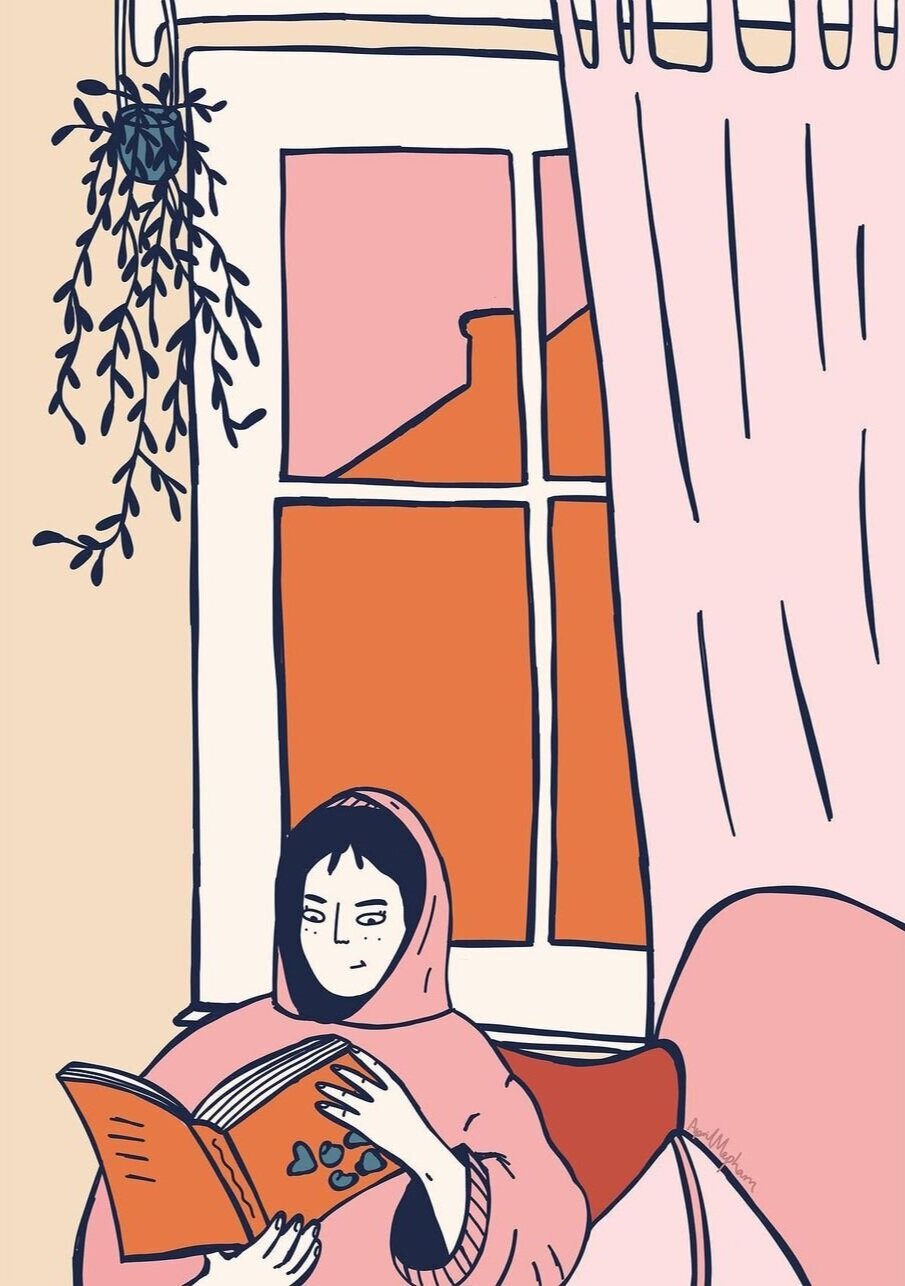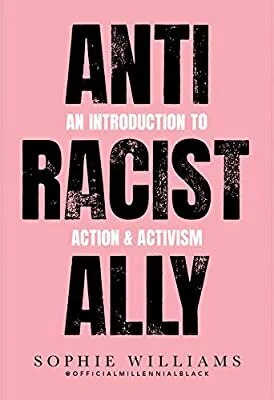8 Non-Fiction Reads about Race for Black History Month and Beyond
It’s no secret that racism and police brutality against Black people is alive and well in 2020.
Less than 6 months ago, the world witnessed the murder of George Floyd. For a moment, thanks to widespread Black Lives Matter protests, a more critical eye was turned on racist institutions within the legal system, education, and the media. Meanwhile, Black people called for allies to up their game in the fight against white supremacy.
But the awful truth is that George Floyd is just another name in a long list of Black people who have been murdered by police or abused by systemic racism. And for most of them there has been no global outpouring of distress. There has been no justice.
Now, Black History Month is drawing to a close and media coverage of the Black Lives Matter movement is dying down. But for anyone who considers themselves “not racist”, it’s important to remember that anti-racist allyship isn’t over when the hashtags stop trending. It’s for allies to keep reading, keep listening to Black people, and keep supporting the cause.
So, whether you're just getting started or trying to keep up momentum, we’re recommending these 8 non-fiction reads about race for you to add to your reading list…
Anti-Racist Ally: An Introduction to Action and Activism, by Sophie Williams
Known on the internet as @officialmillennialblack, Sophie Williams has written what she calls a “bite-sized introduction” to your anti-racist allyship journey.
From countering unhelpful claims made by well-intentioned people to breaking down the concept of intersectionality, each chapter delivers a direct and digestible message. Williams manages to strike a balance between uncompromising and unpatronising, and offers it all up in a compact and unthreatening 176 pages. This quick read is the ideal starter pack for anyone who doesn’t know where to begin - or the perfect stocking filler for that ‘I’m not racist but…’ person in your life.
Fearing the Black Body: The Racial Origins of Fat Phobia, by Sabrina Strings
Delving into the representation of Black bodies from the Renaissance onwards, ‘Fearing the Black Body’ reveals the fetishisation and commodification of Black women in art. In this important text, Strings considers how fatphobia is rooted in a fear of Black women’s bodies. This, in turn, originates with the rise of the transatlantic slave trade, as the white “elite” tried to justify the racial hierarchy by consistently depicting Blackness as the antithesis of intellect and taste.
Far from being a dry academic work, this book is instrumental in explaining how a critique of fatphobia would be incomplete without an analysis of racial bias. It also serves to illustrate the fragility of beauty ideals and provides hope for their eventual disintegration.
Black and British: A Forgotten History, by David Olusoga
‘Black and British’ is essential reading, revealing the extensive and often complicated relationship between Britain and the people of the Caribbean and Africa. The history of Black people in Britain is a suppressed narrative, but is one that is admirably uncovered and reclaimed by Olusoga.
Starting in Roman Britain, Olusoga moves methodically through history, examining the Elizabethan and Georgian periods, the industrial revolution, the world wars, and Windrush. Wonderfully written and absolutely captivating, this book makes it glaringly obvious that we have so much to learn about our collective history. ‘Black and British’ is a brilliant starting point.
Brit(ish): On Race, Identity and Belonging by Afua Hirsch
Existing as a mixed-race person in Britain, Hirsch feels an outsider looking in; straddling Black and white identities, never fully belonging with either.
In her book, Hirsch offers a unique perspective on notions of belonging and the importance of a cohesive cultural identity. She claims that, unless we take an unflinching look at our collective history in Britain, Black people will continue to be ostracised and excluded from the national narrative, and white supremacy upheld. This is a crucial read, both heart-wrenching and hopeful, and should be picked up by all who wish to understand the impact and legacy of racism on both the individual and collective psyche.
Me Too, Not You, by Alison Phipps
This short non-fiction book was published in the wake of the 2017 #MeToo movement, revealing that the hashtag was not actually coined by (white) actress Alyssa Missano on Twitter that year. In fact, #MeToo began with a Black activist named Tarana Burke on MySpace in 2006.
Unravelling the whitewashing of the #MeToo movement, Phipps, (who is the Gender Studies lecturer at the University of Sussex) shines an important light on the insidious racism inherent in mainstream feminism. Phipps also discusses the need to decriminalise sex work, and is a vehement defender of the rights of trans women. This book is an absolute must-read for anyone who calls themselves a feminist.
The Sun Does Shine: How I Found Life and Freedom on Death Row, by Anthony Ray Hinton
“In the end, none of it mattered. Who you were, what colour your skin was, what you had done […] There was no past and no future on the row. We only had the moment we were in, and when you tried to survive moment to moment, there wasn’t the luxury of judgement.”
The Sun Does Shine is an incredibly moving true story of racially-motivated injustice. The details of the case are infuriating, and yet the lasting emotion is not of anger, but of hope. This is down to Hinton’s remarkable gift for finding the light in darkness, and choosing words to provoke a smile.
Whilst navigating the so-called judicial system in Alabama, Hinton finds a family and builds a whole life while sitting on death row for a crime he didn’t commit. You’ll ride an emotional rollercoaster with this book, becoming so invested in Hinton’s journey that he begins to feel less like a narrator and more like a close friend.
I am Not Your Baby Mother, by Candice Brathwaite
Candice Brathwaite says she wrote ‘I Am Not Your Baby Mother’ to fill a gap in society’s whitewashed narrative of motherhood. Her experience of motherhood as a Black British woman was not reflected in the media, and the existing social spaces she came across for mothers were predominantly white and middle-class.
The traumatic and horrifying details of Brathwaite’s experience of labour serve to emphasise the chilling fact that Black women are five times more likely to die in childbirth than white women. Unflinching, honest, and at times incredibly funny, this is a very personal, but also wide-reaching book concerned with carving out a space for the rich and varied experiences of Black women in culture that all too often silences them.
Natives: Race and Class in the Ruins of Empire, by Akala
Akala (whose real name is Kingslee James McLean Daley) is a British rapper, journalist, author, activist and poet. His debut novel Natives is part biography and part polemic on race and class.
Charting his childhood and adolescence growing up in South London, Akala refutes the idea that his success is due to system of meritocracy that right-wing politicians claim operates in the UK. Instead, he asserts that he has risen through absurd and unexpected consequences of an unequal system that acknowledges a few while leaving behind the many, regardless of talent. A revelatory text about structural racism and class oppression in the UK, this insightful and shocking novel is a must-read.
If you’re also into fiction and want to support Black writing, discover these 6 captivating novels by Black authors. Check out ways to support Black Lives Matter while you’re at it.
Title image by April Mepham, a London-based illustrator from New Zealand.













